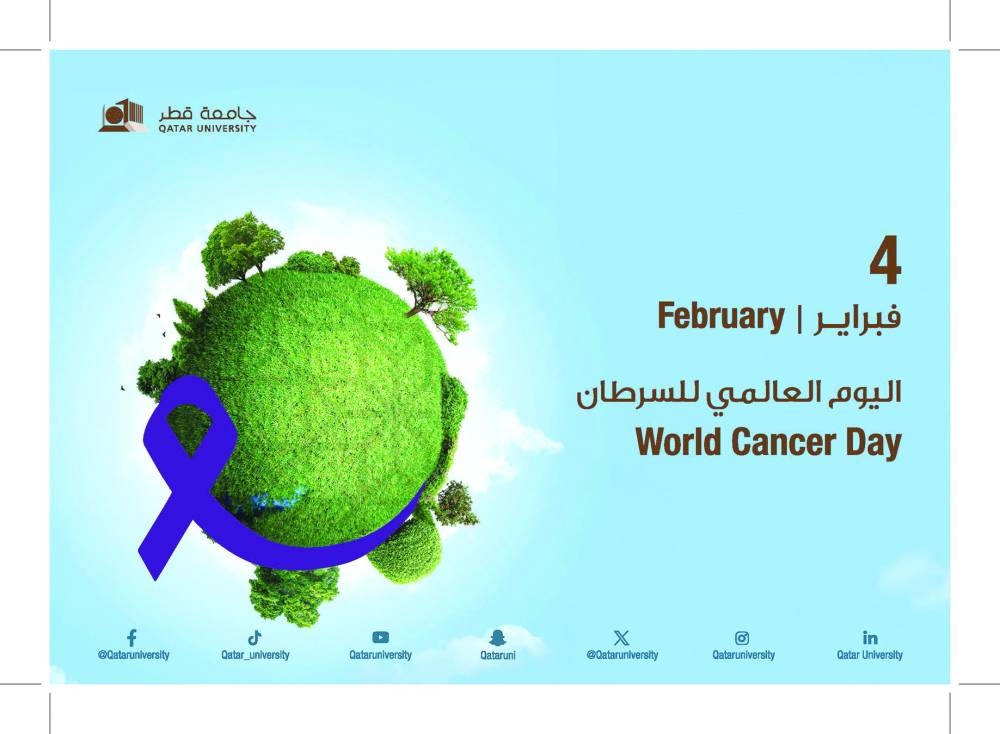On World Cancer Day, marked annually on February 4, professors at Qatar University (QU)’s College of Health Sciences and the College of Dental Medicine raised awareness and preventative efforts against cancer, as well as advancements in research and technology, with emphasis on the challenges faced by cancer patients.
College of Dental Medicine’s acting associate dean for academic affairs, Prof Kamran Ali, stated: “The QU's College of Dental Medicine has employed a multifaceted strategy to contribute to cancer prevention, focusing on raising public awareness about the risks and recognising oral cancer.”
Prof Randa Abidia, professor of general dentistry at the College of Dental Medicine, said: “Prevention and early detection of oral cancer are fundamental topics in the curriculum of the QU's College of Dental Medicine.”
“Students receive intensive education and clinical training on risk factors associated with the disease and early detection of oral cancer,” she said. “Faculty members and students collaborate to organise awareness campaigns on the risk factors, prevention, and early detection of oral cancer on World Cancer Day.”
“Regular visits to the dentist provide an optimal opportunity for early detection of oral cancer, as dentists are trained to identify signs that may raise suspicion of the disease, leading to direct referral to a specialist,” said Prof Faleh Tamimi, professor of restorative dentistry at the college. “It is also important to make efforts to raise public awareness about the risk factors of oral cancer through media campaigns and social media.”
QU learning support specialist Noha Barhom highlighted the significance of tobacco and alcohol consumption as major risk factors for oral cancer.
Individuals should refrain from smoking and consuming alcohol in all its forms.
Smokers and alcohol consumers should seek support from specialised clinics to quit smoking and alcohol consumption.
Encouraging youth to get vaccinated against human papillomavirus is also crucial, as it is a risk factor for oral, throat, and cervical cancers.
Dr Wisam Nabeel Ibrahim, assistant professor of biomedical sciences at the College of Health Sciences, underscored the role of unhealthy dietary habits in increasing the risk of cancer.
He emphasised the importance of choosing foods rich in nutrients and avoiding unhealthy foods, including processed foods and carbonated beverages.
Dr Ibrahim warned about the impact of consuming unhealthy foods on inflammation and oxidative stress, creating a conducive environment for the growth of cancer cells.
According to Prof Reema Tayyem, professor of human nutrition at the College of Health Sciences, the importance of a healthy diet is a key factor that significantly affects cancer prevention and reduces the risk of its occurrence.
She explained that a healthy diet provides essential nutrients, such as vitamins and minerals, which play a crucial role in supporting the immune system and maintaining overall health.
Prof Tayyem said out that a healthy diet contains antioxidant compounds that reduce the harmful effects of free radicals and decrease the risk of cancer.

